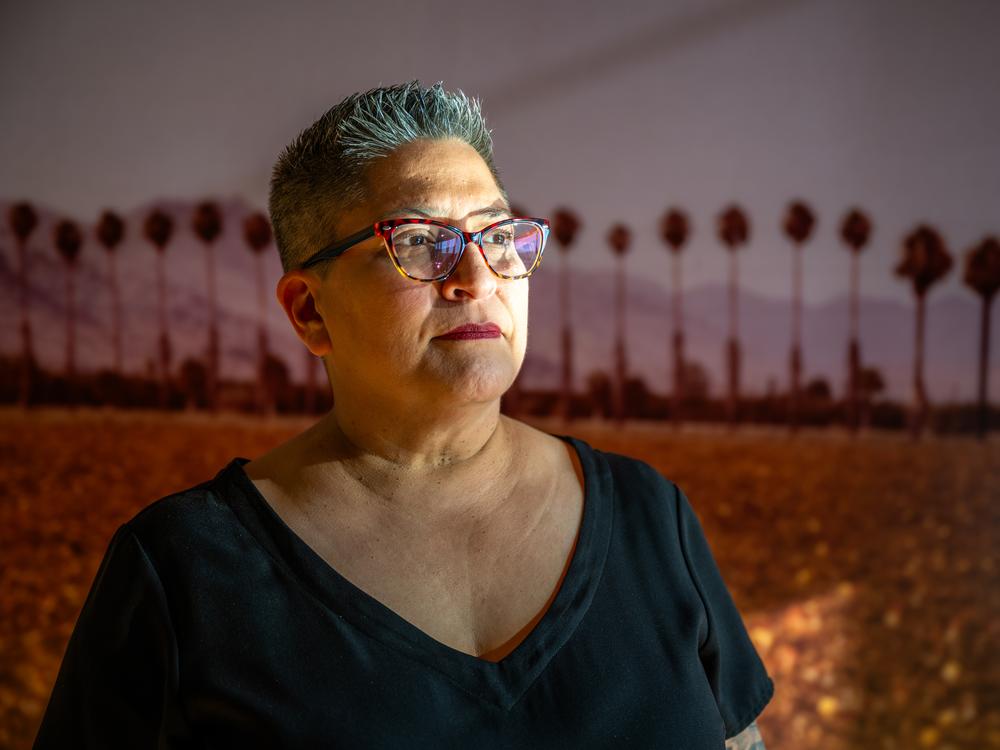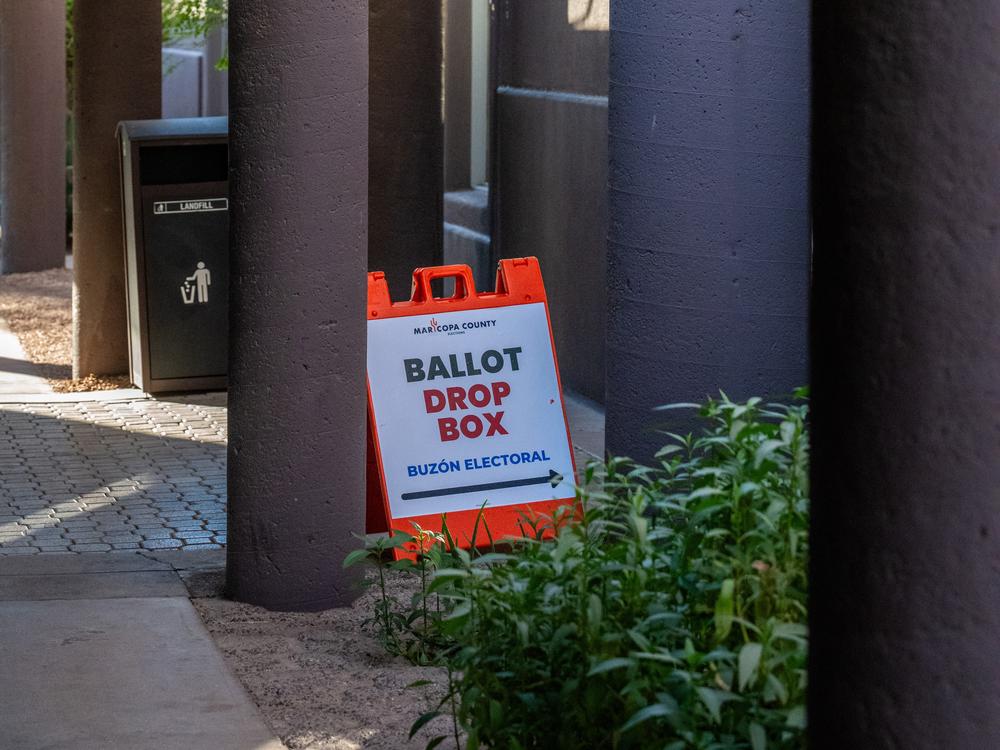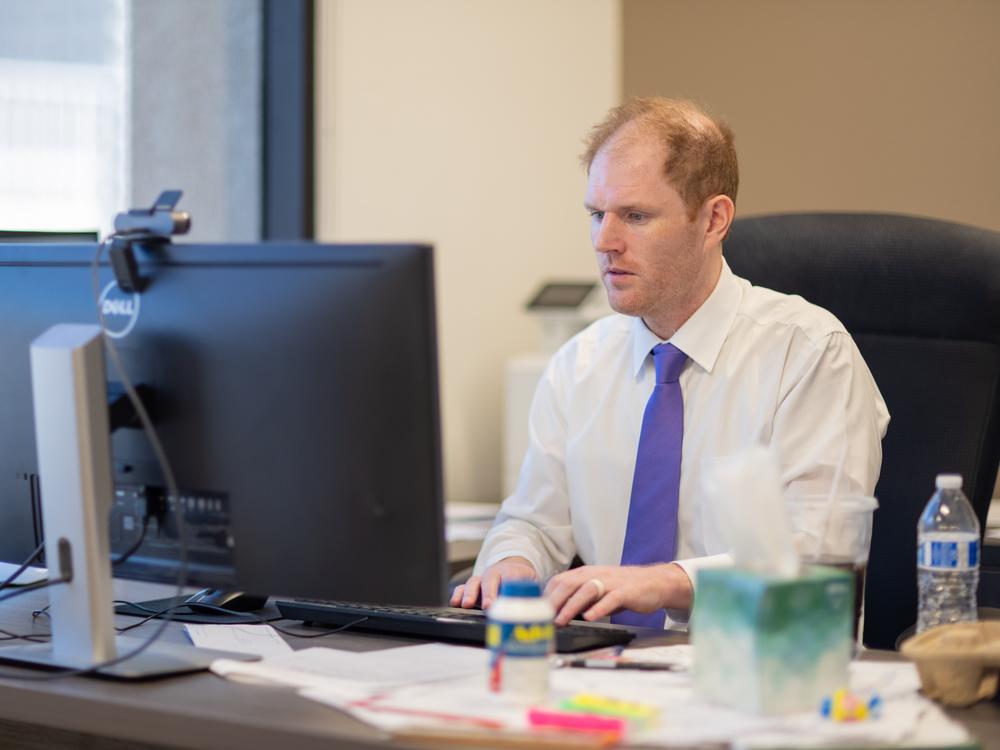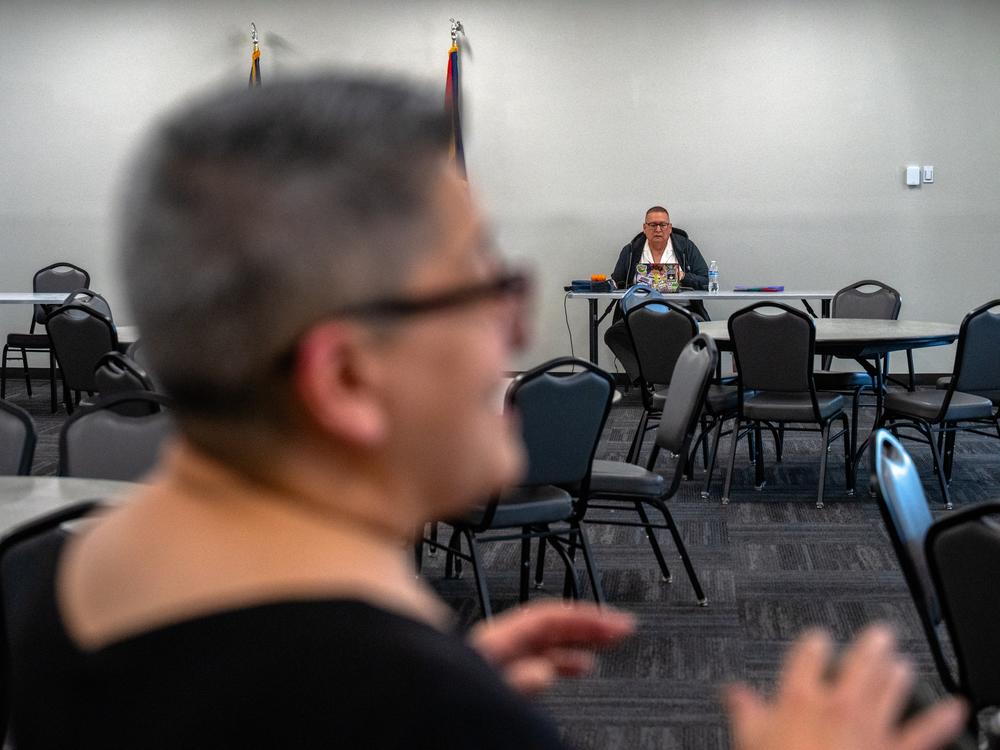Section Branding
Header Content
Barbed wire, high fences: some election spots in Arizona close, but others step up
Primary Content
PHOENIX — Barbed wire. Six-foot, barred gates. Badge-access doors.
Those are the elements around one Phoenix-area voting location. It’s a public school district office and the superintendent there said those precautions are why he is comfortable making it a polling location at all.
The superintendent spoke to NPR last week on condition of anonymity out of concern for increased threats. He said his school district used to provide 17 polling locations. That number is now one, with only his highly secure district office as an option.
Since the last presidential election in 2020, officials have worked to physically strengthen the buildings where voters can vote and where their ballots are counted. And while some scale back their involvement, others open their doors.
“What happened is the rhetoric got stronger, higher, louder, and that’s what brought me to the decision — from a safety perspective — I can’t have those kinds of incidents that are making the front page on my campuses,” the superintendent said. “This is one step below Fort Knox.”
As voters head to polling locations or mail their ballots across Arizona, the safety and security of voting locations and election tabulation is top of mind for officials.
Maricopa County is home to 60% of Arizona's voters. With more than 4 million people, it is one of the largest counties in the country and is among the swing counties that is likely to determine control of the White House.
Some officials there are scared.
The school superintendent recalls needing to be the one to ask voters to not open carry weapons or protest too close, to comply with state election laws which prohibit weapons and electioneering within 75 feet of a voting location.
Still, he wants to be able to provide what he can: one highly secured district office.
“As a large district, I want to be a community contributor that makes a difference in my community,” he said. “Schools are the community.”
Other schools are also pulling away from serving as polling locations, and other election-related offices are also seeing threats. Just last week, Arizona Democrats opted to close a field office in Tempe after a third vandalism incident involving firearms.
Arizona is among states where the FBI has reported unusual levels of threats to election workers.
"That is one of the biggest challenges: getting enough churches, community centers to make up for the schools that have largely pulled out of the voting location business," said Maricopa County Recorder Stephen Richer, the elected Republican overseeing tabulation and registration.
Since the last presidential election in 2020, officials have worked to physically strengthen the buildings where voters can vote and where their ballots are counted. And while some scale back their involvement, others open their doors.
Stepping up to serve
As polling locations shifted, Richer and staff at the Maricopa County Recorder’s office called for new polling locations to fill the gaps. The county has also paid to rent out additional appropriate space, Richer said.
One group Richer thanked for filling this need is the Church of Jesus Christ of Latter-day Saints in Arizona. This year, the church is providing 30 polling locations — more than it has in past cycles, the church says.
“We're doing this because it really is a service to the community,” said Candice Copple, spokesperson for the Arizona LDS Church. “We have members of the church in both political parties and across the spectrum. We value the privilege to vote and we want to be helpful by making it easier for people to have a nearby location to cast their ballots.”
Dan Shkapich, president of the Chandler West Stake, is among church leaders using their facilities as polling locations for the first time.
“Civic involvement, in any area of interest, is crucial to sustaining and improving our society,” Shkapich said. “By opening our meetinghouse as a polling location, our hope is to make it easier for everyone in the community to participate in the election process and have their voice heard.”
This dedication to civic engagement also resonates with Deanna Villanueva-Saucedo, associate vice chancellor at the Center for Excellence in Inclusive Democracy within the Maricopa Community College system.
“I get really jazzed by the fact that we can be offering this critical service to our community,” Villanueva-Saucedo said.
Like the Church, Maricopa Community College is seeing more of its locations used as polling places this year.
“One of the reasons that we were created was to help fulfill civic life, that full realization of democracy,” Villanueva-Saucedo said. “So it's really important to us as a system that we provide those services to the communities that we serve.”
Both Copple and Villanueva-Saucedo said they have not received threats or experienced intimidation, though they have heard of incidents for other groups.
Villanueva-Saucedo said campus security and city police already have protocols in place for hosting events on public campuses. That gives the college the freedom to focus on nonpartisan voter education such as how to verify voter status and ballot information.
“Those are the things we always do,” Villanueva-Saucedo said. “The icing on the cake this year for us is being able to host more of our vote centers than we have in the past.”
With contributions from Ailsa Chang, Noah Caldwell and William Troop.




